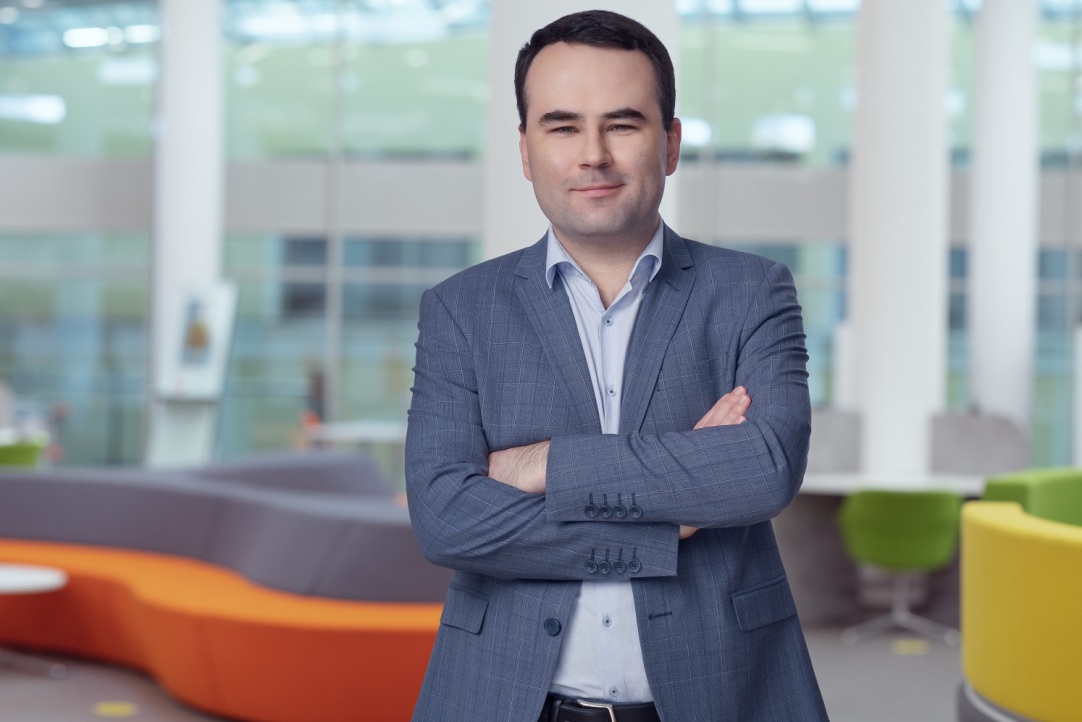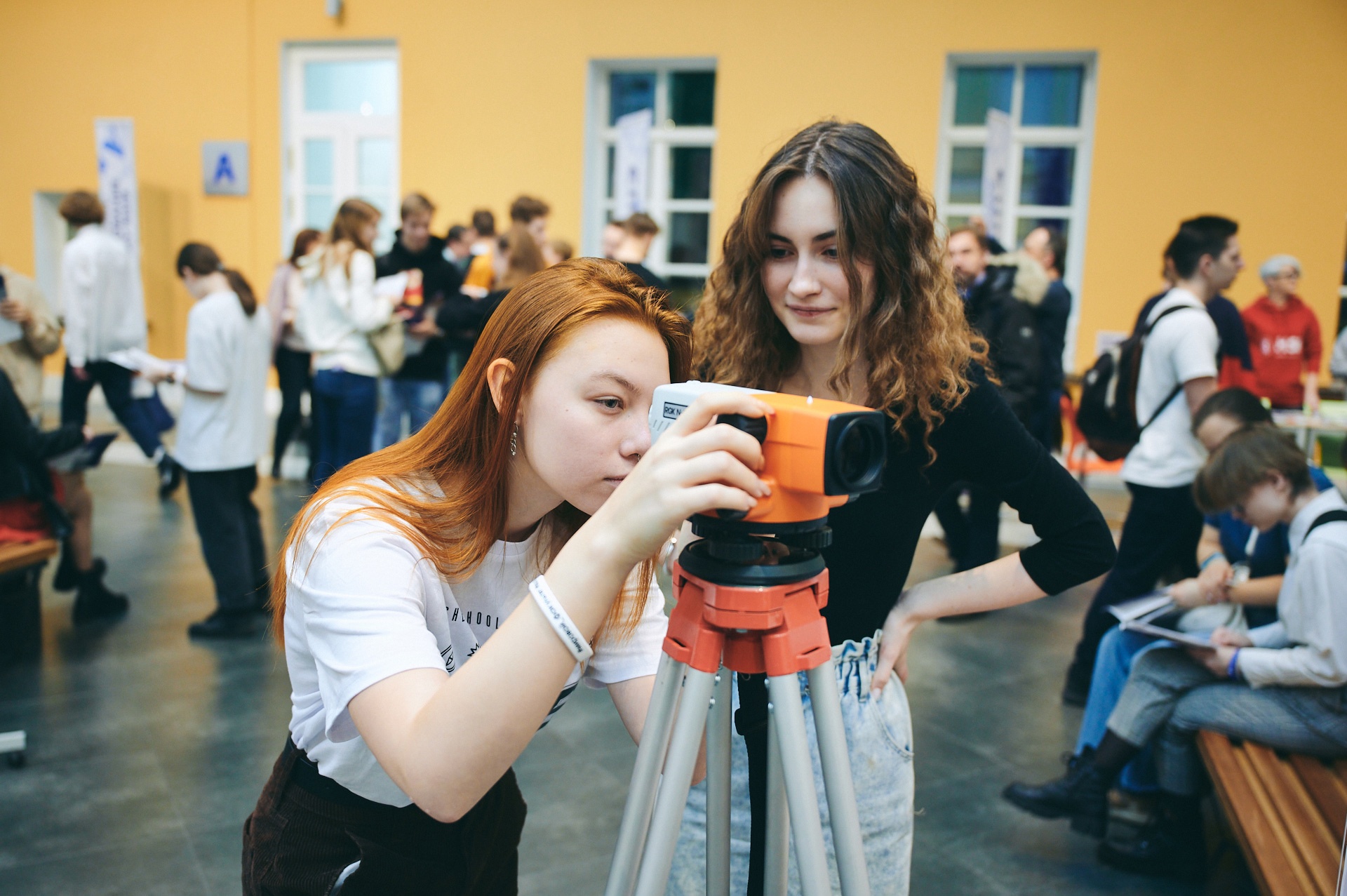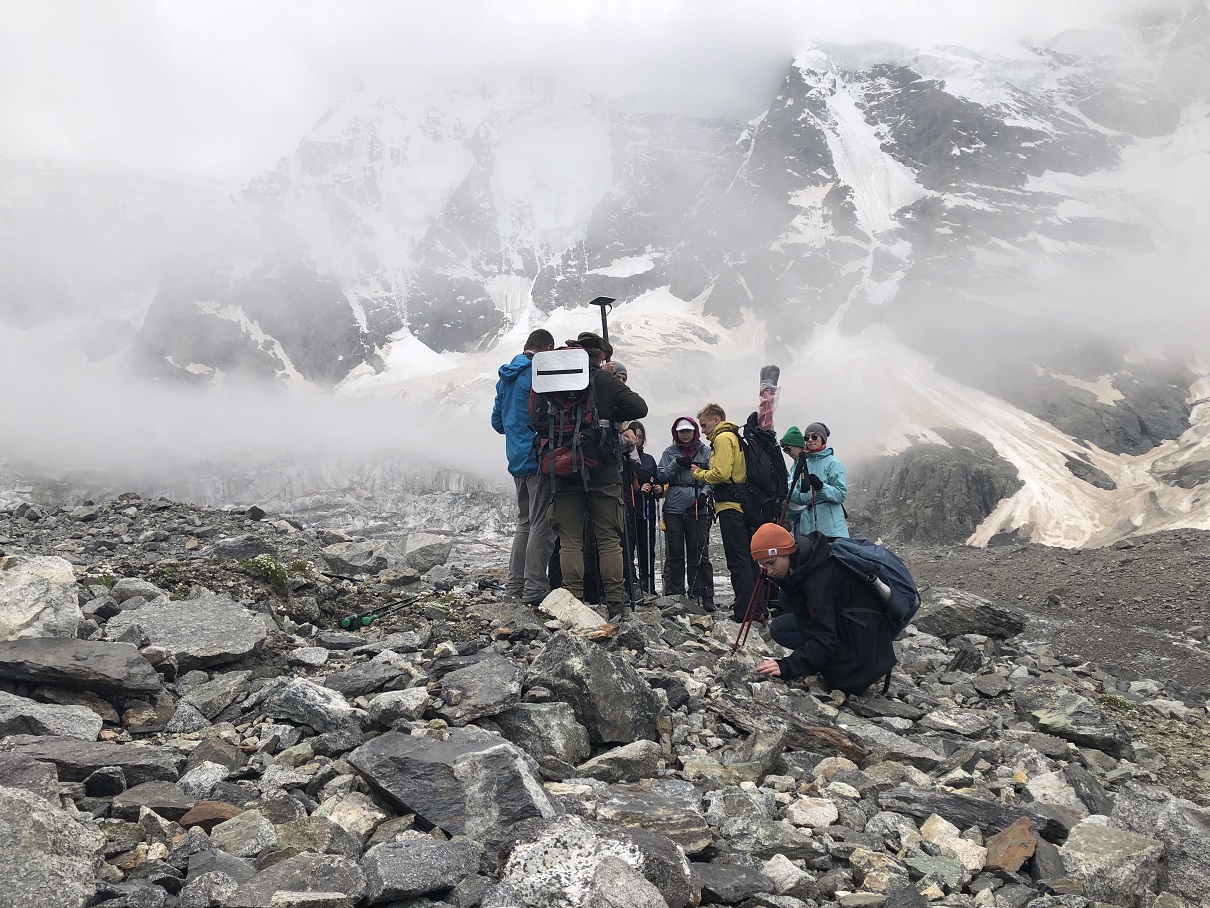Nikolay Kurichev: ‘We Wanted to Create a Next-Generation Geography Education, and We Succeeded’

The Faculty of Geography and Geoinformation Technology opened at HSE University in 2019, enrolment in the first bachelor’s programme took place in 2020, and the first master’s programme was launched in 2022. Nikolay Kurichev, Dean of the Faculty, describes how the idea to train geographers within the walls of HSE University originated, what results have been achieved, and what difficulties have been encountered over the years.
— How did geography begin at HSE University?
— Last autumn we celebrated our third anniversary. From the very beginning, we set up the faculty in cooperation with the Institute of Geography of the Russian Academy of Sciences and sought to create a next-generation geography education using the university’s strengths at organising the educational process and the institute’s scientific groundwork. The first thing we did was implement the bachelor’s programme, which has been available since 2020.
Our Geography of Global Changes and Geoinformation Technologies programme is based on key ideas that, in our view, should characterise modern geography education. The first one is that all geographers should be proficient in modern methods: working with spatial data, geoinformation technology, working with remote sensing data from satellites and drones, and so on. The second big idea is the need to unify some sectional areas of geography around major issues.
On March 25, an Open Day of the Bachelor’s in Geography of Global Changes and Geoinformation Technologies will take place at HSE University at 11 Pokrovsky Bulvar. The event will be held on campus and broadcast online. It begins at 2 pm. Those wishing to attend in person must register by 5:59 pm Moscow time on March 23. The meeting will provide an opportunity to ask questions about admission, the teaching process, other specifics and various opportunities, as well as to learn about modern geographical research and the future of geography.
— What changed at the faculty in 2022?
— In 2022, we faced a whole set of problems and challenges. I think there are two layers here. The first layer is specific isolated problems: access to software, discontinued supply of equipment, data, and so on. These are surmountable difficulties that require additional work and costs, but they have not critically affected our development. The second, more complicated, issue is people. Our interactions with foreign colleagues have become dramatically more complicated and numerous additional barriers have emerged, mostly from foreign states. Some of our colleagues have left the country. Nevertheless, we are coping with these problems. All the educational and scientific plans we had are being implemented.
— Last year, the faculty opened the new Master’s in Low Carbon Development. Was this in response to external demand?
— We decided to create this master’s programme in 2021. We took up this topic because climate and the carbon footprint agenda have come to the forefront in the last few years. By 2021, there was not a single educational programme in Russia specifically devoted to climate policy, low carbon development, carbon markets, and so on. We responded to a practical demand, and it turned out to be a very relevant move strategically.

In 2022, we enrolled good students, as the competition for the programme was high. Most importantly, we had motivated people, most of whom are professionals who have been in the industry for several years and need systemic knowledge in the low carbon development area.
In 2022, despite the challenging external environment, the development of the climate agenda in Russia has not stopped; the state and business continue to work in this direction. This opens up new opportunities for applied projects
The opening of the master’s programme has enabled us to gather a small but strong community of climate and carbon management specialists around the faculty. In addition to their engagement in teaching, these experts are also engaged in applied research projects. We are planning to set up a Centre for Natural Climate Solutions together with the Ministry of Education and Science. The centre’s tasks will cover all key aspects related to the development of the market for natural climate projects.

— What are the faculty’s future plans for developing its research areas?
— In 2020, we were almost exclusively engaged in education; in 2021–2022, we started to do research as well. We have a certain vector of movement. It deals with climate issues, but less so with low carbon development than with adaptation to the natural changes that will inevitably occur.
At the moment, there is an understanding, both globally and in Russia, that whatever efforts we make to mitigate climate change, it cannot be stopped. There will be consequences, and they will be massive
It could be heat waves somewhere, droughts somewhere else, the spread of pests in forests, increased frequency of wildfires, changes in river flows, and so on. These risks need to be assessed, and we must have scientifically substantiated mechanisms for adapting to these changes. In 2023, we plan to be actively engaged in this sphere.
— Your faculty has a Geodata Centre that also deals with applied projects. Tell us about the key ones.
— We opened the Geodata Centre in September 2021. It systematises work with spatial data at the faculty, collects data that emerges in the course of research projects by our colleagues and students, and helps other subdivisions of HSE University work with spatial data. Many departments have such a need: economists, sociologists, urbanists, colleagues from the Institute for Statistical Studies and Economics of Knowledge, and so on.
For example, we were involved in a major project by HSE University and Norilsk to create a concept for urban greening and apply natural and climatic solutions to urban development tasks. We are now negotiating with a number of major banks to assess climate-related and other types of natural risks, as the frequency of various natural hazards is increasing and the losses associated with them are also increasing.

— Last year, the International Laboratory of Landscape Ecology began work on fundamental research. What is new there?
— The international laboratory was set up as part of a major HSE University programme to attract foreign scientists to work with the university. There is an original school of landscape science in Russia. It has very valuable intellectual reserves, but the golden period of this discipline was in Soviet times. Now there is an urgent need to translate this intellectual baggage into modern language and integrate the existing reserve with modern theoretical approaches accepted in the world.
— What is your assessment of the faculty’s work in the last three years?
— We originally had an educational objective in the foreground: we wanted to create a next-generation geography education. It seems to me that we have succeeded in this with our undergraduate and master’s programmes. Of course, we will only be able to talk about it with certainty after 2024, when we have our first graduates and our students go on to work and study at higher levels. But two and a half years have passed since the enrolment of our first students, and after listening to their term papers and seeing them in the field, I am convinced that we will get good results.
See also:
‘The Goal of Modern Geography Is To Digitise Expert Knowledge and Integrate It with Big Data’
The importance of geographical science is increasing, as is the demand for education in this field. Since 2020, application numbers for Bachelor’s programmes at HSE University’s Faculty of Geography and Geoinformation Technology have climbed by 30%, while interest in Master’s programmes has also expanded, with applications up 10–15%. Nikolay Kurichev, Dean of the Faculty, spoke about this at a press conference hosted by MIA Rossiya Segodnya.
Mongolia's Forests Found to Be Poorly Adapted to Climate Change
Compared to meadows and steppes, the montane forest ecosystems in Northern Mongolia display less self-organisation, making them more susceptible to the impacts of climate change. This is the conclusion of a team of researchers led by Robert Sandlerskiy, Head of the International Laboratory of Landscape Ecology of the HSE Faculty of Geography and Geoinformation Technology. The results of the study have been published in a special issue of Entropy.
HSE University Launches Master's Programme in Spatial Data and Applied Geoanalytics
HSE University’s Faculty of Geography and Geoinformation Technology is launching a Master’s programme in Spatial Data and Applied Geoanalytics. The first enrolment will take place in 2024. It is aimed at training specialists who are proficient in modern tools for working with geodata and geoanalytics to make high-quality management decisions in business and public administration.
Student of HSE Lyceum Wins Bronze at European Geography Olympiad
The 8th European Geography Olympiad took place in Serbia at the end of June. The results of the competition were announced individually in two age categories: the senior group (16–19 years old) and the junior group (12–15). The Russian team won three gold, two silver and three bronze medals. One of the bronze medal winners was Danila Gavrilov, student of the HSE Lyceum.
Middle Volga Experienced Half as Many Droughts in 20th and 21st Centuries as in 19th Century
These were the findings made by researchers of the HSE Faculty of Geography and Geoinformation Technology and the Russian Academy of Sciences Institute of Geography. They studied tree rings of Scots pines for an insight into the region's climatic past and published their results in Dendrochronologia.
‘The “Butterfly Effect” Is no Longer an Abstract Idea, but a Reality that You Constantly Observe’
The bachelor’s programme ‘Geography of Global Changes and Geoinformation Technology’ is offered by the Faculty of Geography and Geoinformation Technology, one of the newest at HSE University. One year ago, Yulia Kuznetsova came on as the programme’s academic supervisor. In this interview for the HSE News Service, Yulia Kuznetsova explains her job duties, where HSE geography students do their field work, and why geography itself can make you happy.
Card Index: Climate Migration
Natural disasters and long-term climate change processes, from rising sea levels to melting glaciers to soil degradation, are causing people to move to safer locations not yet affected by food and water shortages. Recently, climate migration has been on the rise globally due to environmental changes. What territories are more likely than others to experience out-migration, and why? A report co-authored by Associate Professor of the HSE Faculty of Geography and Geoinformation Technology Yulia Kuznetsova offers some ideas.
‘At the First Meeting with the Teachers it Became Clear that the Study Process Would Be Wonderful and Exciting’
In the autumn of 2020, the newest HSE faculty – the Faculty of Geography and Geoinformation Technology – enrolled students for the first time. The students share their impressions of the university after six months of study, as well as the admission process and their interest in geography.
Russian Academy of Sciences Awards Gold Medal to HSE Professor of Geography and Geoinformation Technology
Professor Sergei Semenov, head of ‘Global Changes in the Natural Environment and Climate’ sector, was awarded the chief award of the Russian Academy of Sciences in the field of environmental change.
‘Modern Geography Is a High-Tech Area of Science and Practice’
In cooperation with the Institute of Geography of the Russian Academy of Sciences (RAS), HSE University will now offer a bachelor’s degree in Geography of Global Transformation and Geoinformation Technology. Olga Solomina, the new undergraduate programme’s Academic Supervisor, and Nikolay Kurichev, Dean of the Faculty of Geography and Geoinformation Technology, discuss the programme’s curriculum and the exciting opportunities that await new students.


